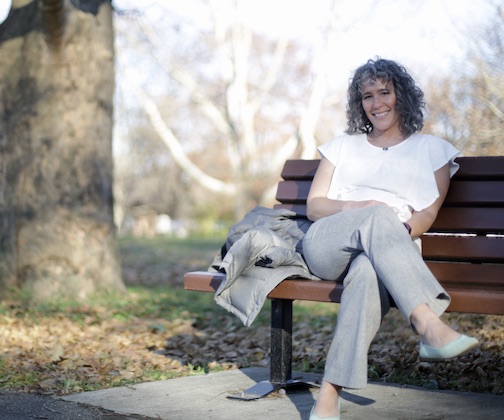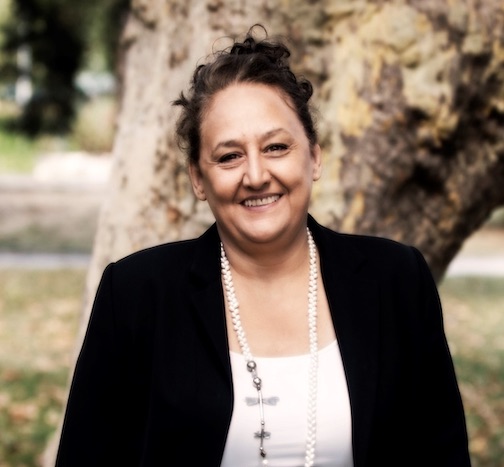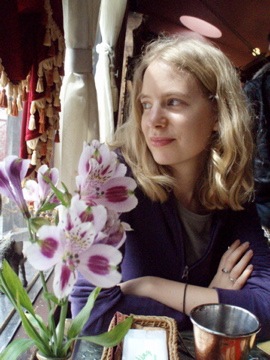12 years ago I underwent a procedure called LEEP (Or LLETZ) for removing abnormal pre-cancerous cells from my cervix. These are the kind of cells that could turn into cancer years later.
Everything I’d heard about the procedure led me to believe it would be completely minor. I’d bleed for a while, and wouldn’t be able to have sex for four weeks; but after that I’d be back to normal, using tampons, swimming, etc. I was nervous, and also confused, about why at age 25 my cells were already abnormal; but the doctor reassured me that this was a minor procedure, to be performed in under 20 minutes with a local anesthetic.
A week or so after the LEEP I started bleeding non-stop. When I went to the hospital I was given antibiotics for an infection. Six weeks later I still felt sore, and my stomach muscles felt barely able to hold my body in a sitting position. But I assumed that I was just taking extra long to heal from the infection.
Except I never really did heal. The first time I tried having sex was painful. Something was wrong with my ability to orgasm; it felt weak compared to what it had been before. I also had no desire to have sex. Still, I was in a new relationship, and previously the sex had been very good, so I persevered, hoping everything would get back to normal.
I returned to the doctor and was told that perhaps a bit of scarring was causing my pain. She told me she’d examine me on my next visit. Perhaps this was a mistake, but I went home and started researching “scarring after LEEP.” I found a webpage that told me scarring could be burnt off, using the same procedure I’d just undergone.
At this point my gut instinct kicked in. There was no way I was going to try solving the problem by undergoing the same procedure that had caused it. Perhaps the doctor would have suggested a completely different treatment on my next visit. But fear, trauma, and mistrust made me decide that not returning was my safest option.
In the past I’d had success curing health issues with alternative methods. During my early twenties, for example, I’d recovered completely from chronic fatigue syndrome when I began practicing yoga everyday. A few years later, while studying for exams, a severe backache prevented me from sitting for more than 15 minutes at a time. When a chiropractor and osteopath only fixed the problem temporarily, I took the advice of a friend and started meditating while lying on my back, focusing on the tension I felt and trying to relax it. Within a few months, I could sit long enough to watch a film, and even go on a seven hour train journey.
So now, I couldn’t allow myself to grieve for my lost sexuality. Instead I operated on a kind of blind faith that I could heal myself. I started meditating for hours each day, practicing yoga, and belly dancing to help release the tension I had felt in my hips since the LEEP.
As I embarked on this self-directed healing process, I remembered an intense sexual experience I'd once had, an orgasm that seemed otherworldly. The sense of pleasure seemed to come not from my own body, but from outside it, as though something had whooshed through the air, and into me. I joked about it as an “orgasm from God.”
Even before my LEEP procedure, that sexual experience had piqued my curiosity, and I had been reading books about Taoist and Tantric sexuality, intrigued by the idea of a relationship between sexuality and spirituality. Now, my reading gave me hope that even though I felt sore and damaged, I could heal my body by tapping into this sexual energy, which the books referred to as universal spiritual energy.
Over time I did heal myself to a great extent. With the help of massage techniques I learned at a tantric workshop, I was able to relax my body enough to enjoy sex again and have better orgasms. Getting in the mood took a lot of effort, but I found that once I got there, sex was enjoyable. My sex drive didn’t return to what it had been, but I did arrive at a deeper understanding of sexuality, which felt like a gift out of all the pain.
A few years later, when I was pregnant, something amazing happened: my sex drive was completely restored for the entire nine months. Although after the birth it dropped back to its former low level, this experience gave me faith that nothing was seriously wrong with my body, and that in time it could be healed.
Being a mother took over the next five years of my life. Sex was much better than before the pregnancy, but I still didn’t feel much desire. I found myself ignoring the problem, telling myself it was normal to be tired and not in the mood for sex--after all, I was a tired parent now. But I knew that my issue went much deeper.
From time to time during those years, I’d find myself wondering if this had ever happened to another woman. I searched online occasionally, but never found anything relating to my experience. What happened to me after LEEP must have been a ‘freak’ reaction of my own body, I assumed.
Then one day, to my shock, I discovered a story almost exactly like mine. Most shocking to me was the woman’s description of changes in her creativity and in her sensory perception of the world. I had experienced all these symptoms, but had no way to connect them to a supposedly minor treatment on my cervix. These symptoms seem intangible and difficult to articulate; but after being in touch with your sexuality and creativity, losing it is like losing your self.
As I read the comments in the article, I discovered that other women had been dealing with painful sex for years, too. I began to hone my search terms and discovered more women dealing with the long-term side effects of LEEP.
As I continued to research, I learned about risks that were never mentioned to me as young, naïve 25-year-old: cervical stenosis, miscarriage, premature birth. And perhaps most devastating, the destruction of a woman’s sexual self. As a 25-year-old, orgasms were high on my priority list. Had a doctor told me that the LEEP came with risks to my sex drive, I would have walked out. This preventative treatment, at least for me, has been more damaging than its benefits.
After reading about all the other women who have been through experiences like mine after LEEP, my perception about what had happened to me shifted completely. Until now, I’d kept quiet, unable to find the voice to tell my story because I thought I was the only one who had lived it. But in connecting with others, I’ve realized the vital importance of speaking out. When we share our stories, we reassure each other that we are neither alone nor crazy for experiencing negative effects after what is meant to be a simple, minor procedure. It is my hope that in coming together, we will build a powerful argument to make the medical system understand the need to inform women of the risks and develop a safer procedure.
More Stories from Kinnected

At times, it has been really frustrating to be a strategist and health communication professional and witness the lack of strategic planning and messaging that we have over the last two years.
-
4 years ago

"What many people miss is that emotional exhaustion among clinicians existed long before the pandemic."
-
4 years ago

"A lot of people argue whether technology is good for the future of humanity or bad. In my opinion, it is both - just as an herb could be a poison or a medicine."
-
4 years ago

